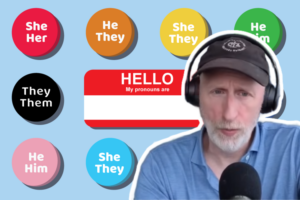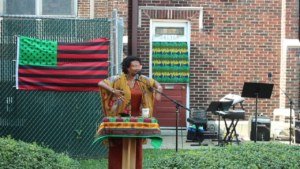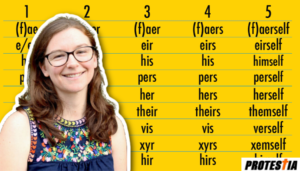
No Surprises Here: David French Flip Flops on ‘Personal Pronouns’
David French, who we like to call ‘The State’s Fool”, is a self-proclaimed “conservative” Christian commentator who can always be counted on to give the worst take possible on any situation. These positions include announcing he’s pro-‘same-sex marriage, supporting ‘gender-affirming’ care for children, condemning Texas University for banning drag shows, declaring he’s voting for a




